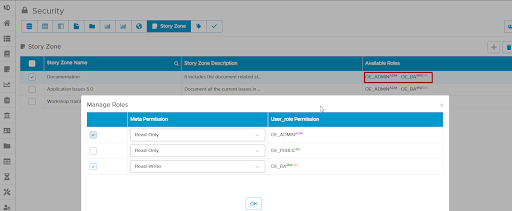The data story feature in OvalEdge is like Wikipedia. It enables users to create, modify, and organize the business knowledge within OvalEdge. This makes all tribal knowledge neatly documented and available for data discovery and reuses within an organization.
How to use a data story page?
In OvalEdge,
- When you create new content on this page it is called a Data story.
- Each data story can be grouped under a Story Zone.
- Each Story zone can have one or more Parent data stories. Each parent story has single or multiple child stories. Data stories can be tagged to be organized further, based on business needs.
- Users can edit each data story to include end-user features such as formatting, styling, inserting images & content, spell check, etc. For a complete list of editing functions, See the Editing tool supported features.
An endorsement can be added to each Story Zone to instill trust in the content.
How to create a Data Story
Before creating a data story, admins need to create a story zone. Follow the steps below to create a story zone:

Navigate to the Administration >> Security module and select the Story Zone tab as shown below:

To Add New Story, click  sign on the right-side corner. Enter the name of your choice with additional information in the description as shown below and save.
sign on the right-side corner. Enter the name of your choice with additional information in the description as shown below and save.
To Delete an existing story, select the Story Zone and click on sign on the right-side corner. After confirmation, the selected story zone will be deleted.
Note: You should belong to the OE_ADMIN role to create or delete a Story Zone. Admin users can customize permissions on each Story Zone to protect the documents or data stories.
Story Zone Permissions
Permissions: User roles can be set on each 'Story Zone name' in the security page to limit the access permissions on its content. The following are the two security permissions and their privileges:
|
Meta Permission Type |
Role Abbreviation |
Access Privileges |
|
|
READ ONLY |
RO |
|
|
|
READ_WRITE |
RW |
|
|

All the data stories that belong to a Story zone inherit the access permission from the root story zone. Users can access these data stories based on their role permissions set on the story zones.